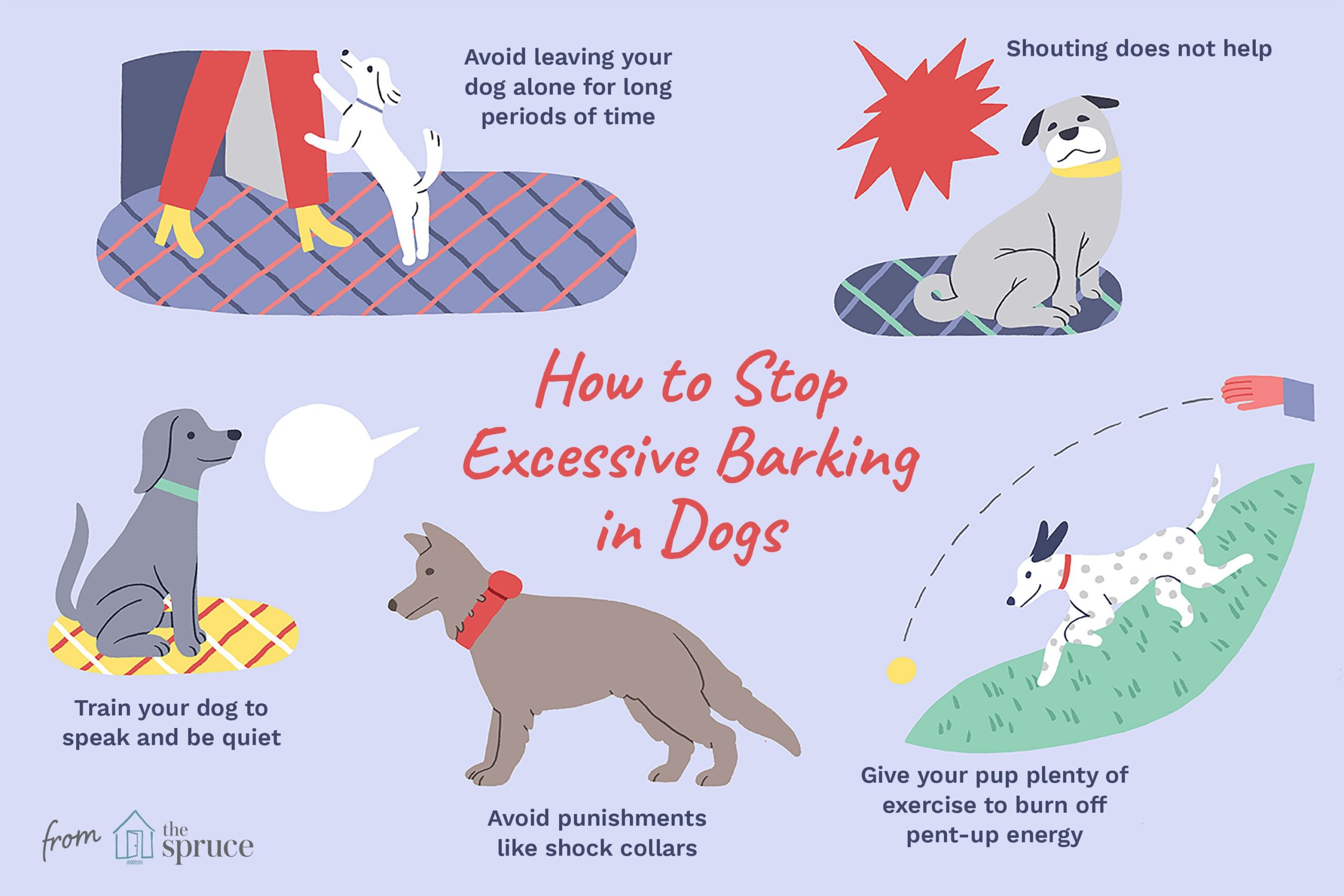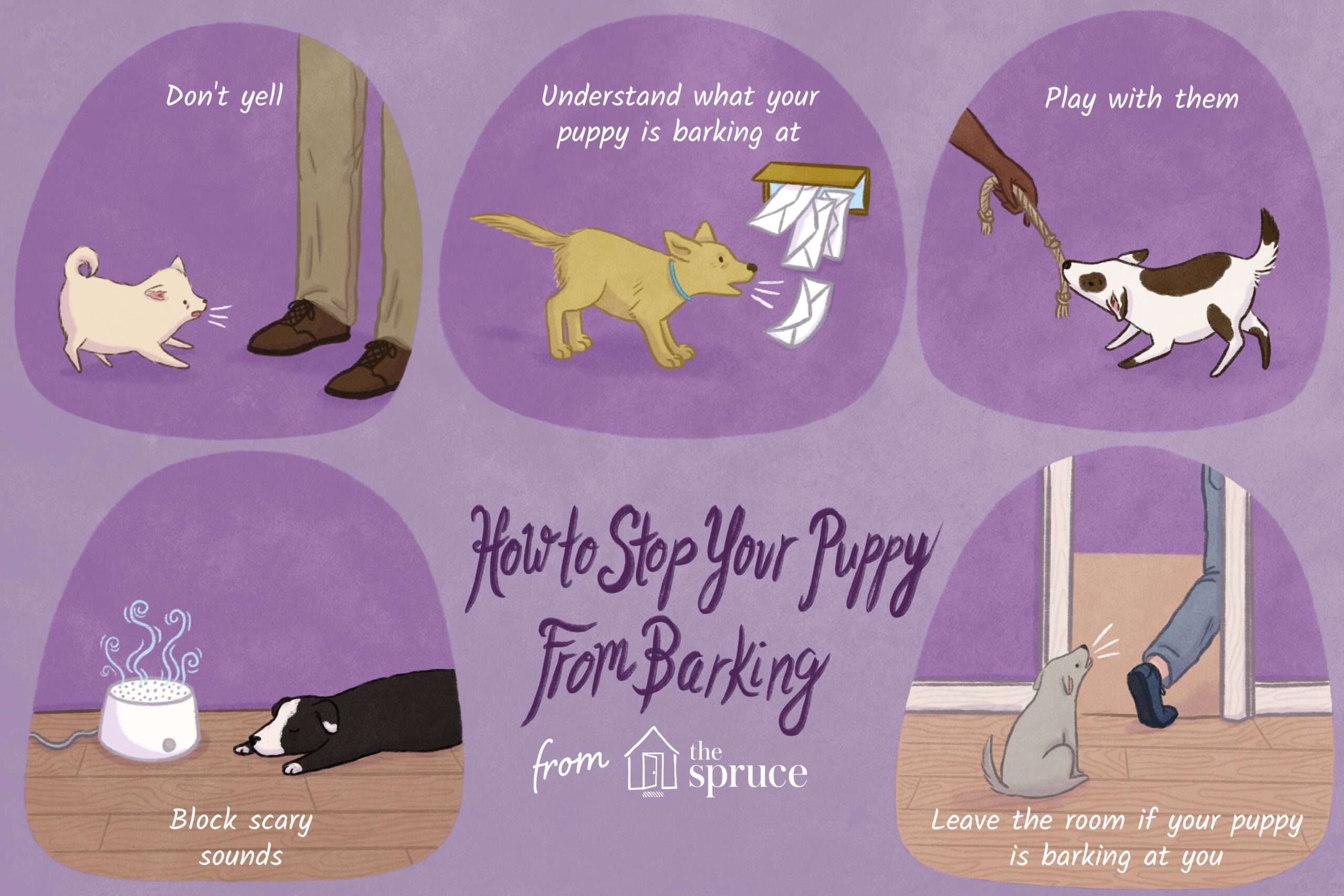Key Takeaways:
- Dogs bark as a form of communication and to express their emotions.
- Barking at everything can be a sign of anxiety or fear in dogs.
- Proper socialization and training can help reduce excessive barking.
- Identifying the triggers for your dog's barking can aid in addressing the issue.
- Seeking professional help from a veterinarian or dog behaviorist may be necessary for severe cases of excessive barking.
Are you tired of your furry friend barking at every little thing that moves? Do you find yourself constantly wondering why your dog can't seem to keep quiet? Well, get ready to uncover the secrets behind this common canine behavior. Understanding why your dog barks at everything is not only essential for a peaceful home environment but also crucial for your furry companion's well-being. By diving into this topic, you'll gain valuable insights that can help you build a stronger bond with your four-legged friend and create a harmonious living space. So, let's explore the fascinating world of canine communication and discover why dogs bark at everything they encounter. Get ready to unlock the key to a quieter, happier life with your beloved pup!
Why does my dog bark at everything?
Dogs bark for a variety of reasons. One common reason is that they are trying to communicate with us or with other animals. They may be alerting us to something, such as a stranger approaching the house or a squirrel running by. Dogs also bark when they are excited or happy, like when they see their favorite person or when it's time for a walk.
Another reason dogs bark is because they are bored or lonely. If a dog doesn't have enough mental and physical stimulation, they may resort to barking as a way to entertain themselves or seek attention from their owners.
Reasons why dogs bark:
- Communication
- Excitement
- Boredom
- Loneliness
Communication:
Dogs use barking as a way to communicate with humans and other animals. They may be trying to alert us to something important, like an intruder or a potential threat. Barking can also be a way for them to express their needs and desires.
Excitement:
Dogs often bark when they are excited or happy. This could be because they see someone they love, like their owner coming home, or because they are anticipating something fun, like going for a walk or playing fetch.
Boredom:
If a dog doesn't have enough mental and physical stimulation, they may become bored and resort to barking as a way to entertain themselves. This can happen if the dog is left alone for long periods of time without anything to keep them occupied.
Loneliness:
Dogs are social animals and thrive on companionship. If they are left alone for extended periods of time without any interaction or company, they may bark out of loneliness and to seek attention from their owners.
Common reasons why dogs bark a lot
Dogs bark as a way to communicate with their owners and the world around them. While some barking is normal, excessive barking can be a sign of an underlying issue. One common reason why dogs bark a lot is boredom. When dogs are not mentally or physically stimulated, they may resort to barking out of frustration or to seek attention.
Another reason for excessive barking is fear or anxiety. Dogs that are anxious or fearful may bark excessively as a way to cope with their emotions. This can happen in situations such as being left alone, encountering new people or animals, or experiencing loud noises.
In some cases, medical conditions can also cause dogs to bark excessively. Pain, discomfort, or cognitive decline can lead to increased vocalization. It's important to rule out any potential health issues if your dog's barking becomes excessive and uncharacteristic.
How to know if your dog's barking is a problem
While it's natural for dogs to bark, it becomes a problem when the barking disrupts daily life or causes distress for you and your neighbors. If your dog's barking is constant and prolonged, occurs at inappropriate times (such as during the night), or leads to complaints from neighbors, it may be considered problematic.
Additionally, if your dog shows signs of distress while barking such as pacing, panting heavily, or displaying aggressive behavior, it's important to address the issue promptly. Barking that is accompanied by destructive behavior or self-harm should also be taken seriously.
If you're unsure whether your dog's barking is problematic, consider consulting with a professional trainer or veterinarian who can assess the situation and provide guidance tailored to your specific circumstances.
Dog breeds that tend to bark more than others
While all dogs have the ability to bark, certain breeds are known for being more vocal than others. It's important to note that individual dogs within a breed can vary in their barking tendencies, but these breeds are generally considered to be more prone to excessive barking:
1. Beagle:
Beagles have a strong hunting instinct and were bred to bark while tracking scents. They may bark when they catch an interesting scent or if they're bored.
2. Chihuahua:
Chihuahuas are small but mighty when it comes to barking. They can be quite protective of their owners and may bark at perceived threats or strangers.
3. Miniature Schnauzer:
Miniature Schnauzers are known for their alertness and tendency to bark at anything they find suspicious or unfamiliar.
Can anxiety or fear make a dog bark at everything?
Absolutely! Anxiety and fear can cause dogs to become hyper-vigilant and reactive, leading them to bark at seemingly everything around them. When a dog is anxious or fearful, their senses become heightened, making them more likely to perceive harmless stimuli as threats.
This constant state of alertness can result in excessive barking as the dog tries to communicate its discomfort or ward off perceived dangers. It's crucial for owners of anxious or fearful dogs to address the underlying causes of anxiety through proper training, socialization, and potentially with the help of a professional behaviorist.
Effective techniques to reduce excessive barking in dogs
If your dog's barking has become problematic, there are several techniques you can try to help reduce excessive vocalization:
1. Positive reinforcement:
Using rewards and praise when your dog remains quiet can reinforce the desired behavior and discourage excessive barking.
2. Distraction techniques:
Providing your dog with interactive toys, puzzles, or engaging activities can redirect their focus and prevent boredom-induced barking.
3. Desensitization training:
If your dog barks at specific triggers such as strangers or loud noises, gradually exposing them to these stimuli in a controlled manner can help reduce their anxiety and subsequent barking response.
The importance of consulting a professional for uncontrollable dog barking
If you've tried various techniques but your dog's excessive barking persists or worsens, it's crucial to seek professional help. A professional trainer or behaviorist can assess the underlying causes of the barking and develop a tailored training plan to address the issue effectively.
Uncontrollable dog barking can be indicative of deeper behavioral issues that require expert guidance. By consulting a professional, you'll receive personalized advice based on your dog's specific needs, ensuring a more successful outcome in reducing excessive barking and improving overall behavior.
In conclusion, dogs bark at everything because it is their way of communicating and expressing their emotions. They may bark when they are excited, scared, or trying to protect their territory. It's important to understand their needs and provide proper training to help manage excessive barking.
Why does my dog bark at literally everything?
Dogs can use vocalizations to express their emotions and communicate their needs. They may bark to seek attention, alert others to something happening in their surroundings, alleviate boredom, cope with anxiety or frustration, or protect their homes and families.
Which dog breed barks the most?
According to People Magazine, Samoyed dogs are the most frequent barkers based on data collected from Furbo users. They bark up to 52.8 times per day. The Yorkshire Terrier, the second most talkative breed, barks about 23.6 times a day, but it is still far behind the Samoyed's record.
How do you stop nuisance barking?
If your dog is barking, use a calm and firm voice to say "Quiet." Wait for them to stop barking, even if it's just for a moment, and then give them praise and a treat. It's important not to reward them while they are still barking.
Can you train a dog to stop barking?
Wait until the dogs have stopped barking, even if it's just for a brief moment, before opening the crate door or gate or giving them a treat or puzzle toy as a reward. As they learn that being quiet results in receiving a treat, gradually increase the amount of time they have to remain quiet before being rewarded.
Why does my dog bark at everything non stop?
If your dog is feeling unstimulated, they may engage in excessive barking. It is important to provide your dog with enough mental and physical activities to prevent boredom. Creating a consistent daily routine is crucial as your dog may be barking to express their desire to play, eat, or seek attention.
Why does my dog bark at everything and nothing?
Barking is an inherent behavior for dogs, serving as a means of communication with both other dogs and humans. Much like humans, dogs bark to express fear, defend their territory, alleviate boredom, seek attention, experience overarousal or excitement, or simply for enjoyment.
















